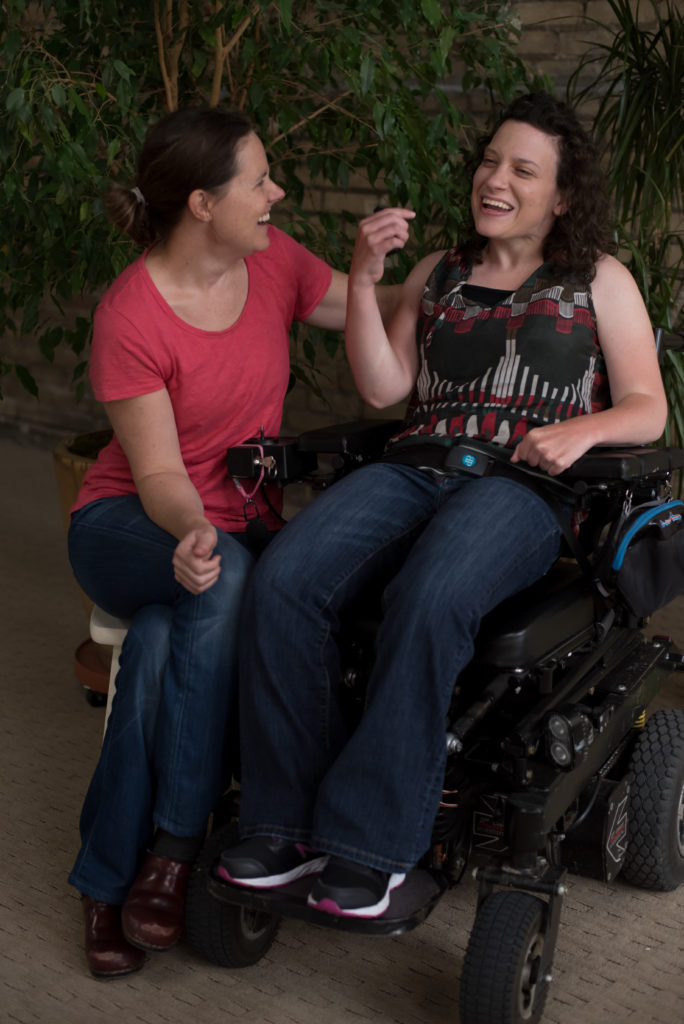Supporting Body Autonomy During Personal Cares

Most people will need help with personal cares at some time in their lives. This could be due to illness, injury, disability, pregnancy, aging, etc. It might be a short time that support for personal cares are needed or for a lifetime. No matter the reason for needing help with activities like toileting, getting dressed, taking a shower, combing hair or taking medications, consent is always important. There are times that you might need someone to touch you for health and safety reasons.
Perhaps your job or role as a parent or caregiver includes you performing personal cares for others. Sometimes consent and bodily autonomy are overlooked during personal cares. We may see it as an act that is completely necessary and forget to ask if the person is okay or comfortable, because usually it just needs to be done. There are ways that we can support healthy hygiene and assist in personal cares that uphold an individual’s dignity and ensure that we respect their body rights. We’d like to share some ideas with people who perform personal cares to support body autonomy.
Tips for Supporting Body Autonomy with Personal Cares:
- Ask for and get consent.
Get permission before touching the individual. This could be something as simple as saying, “I am going to pull down your pants and underwear and wipe you. Is that OK? Are you ready for that?” Doing this sends the message that they are in charge of their body, and they are playing an active role in what is happening. They are able to practice some independence and advocacy. No matter what the reason is, necessary personal cares or not, someone should always ask and wait for the answer before touching their private body parts.
- Give choices.
Again, this is to promote independence and self determination and advocacy. Even though someone is helping them keep their body healthy, they are feeling empowered and given as much opportunity to be involved.
Maybe you have a student that requires help with changing, you could say, “It’s time to change and go back to the classroom. Would you like to sit down or stand as we put your shirt on?” Or if you are wiping someone, you can ask if they would like the wipes warm or cold. It really is as simple as that! If there are two staff, you could ask which person they would prefer to perform the personal care for them.
- Narrate your actions.
Tell the person exactly what to expect right before and as you are doing it. Tell them where on their body you will touch them and why. This can take some of the shock or discomfort out of cares. An example of this, if you are helping someone with their shoes, you could say, “I am going to touch your lower leg and foot as we put your shoes on.”
Additional Strategies:
- Show care through kindness. Having someone in your personal space can bring up a lot of feelings. Be mindful that some days are harder than others for all of us. Patience and kindness can really help.
- Find ways to make it fun and to connect with the person you are supporting. Put on some music, talk about shared interests, put on a mystery podcast and make predictions together, or provide some care like a foot rub if the person would like that.
How we can help:
Mad Hatter Wellness has a number of resources to support body autonomy during personal cares.
Teaching and Supporting Body Autonomy During Personal Cares Webinar:
Communication Boards:
Additional Resources:
Dignity and care:
Dignity in care: personal hygiene
Personal hygiene: Dignity in care videos | SCIE
How to Maintain Privacy and Dignity when Providing Personal Care
People to follow online:
@andrewgurza1
@centeringdisability
@radiantabilities
